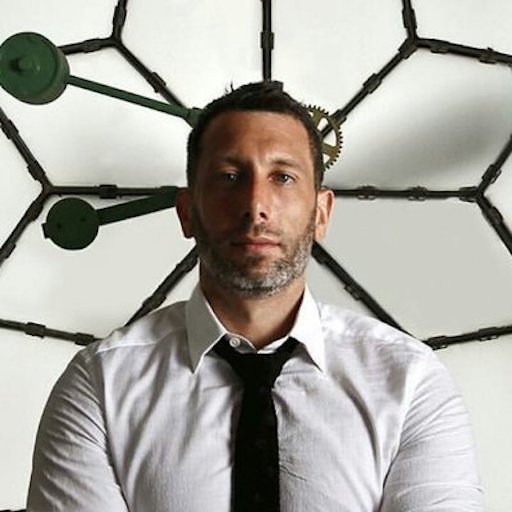
Michael J. Biercuk, founder and CEO of Q-CTRL
Michael J. Biercuk, founder and CEO of Q-CTRL, a global startup based in Sydney that applies the principles of control engineering to accelerate the development of quantum technology, will participate in the launch webcast of Australia’s quantum technology roadmap today from 10:30 a.m. to noon.
The Growing Australia’s Quantum Technology Industry report identifies actions to ensure Australia’s world-class research and quantum start-ups support long-term economic growth in industries from mining and agriculture to defence, health and communications.
Produced by Australia’s national science agency CSIRO, the roadmap outlines a vision to create a thriving quantum technology industry in the country that’s projected to generate $4 billion dollars annually and 16,000 jobs by 2040.
Q-CTRL is Australia’s first venture-capital-backed quantum technology company, delivering software products and professional services to help customers and partners harness the exotic properties of quantum physics for real-world benefit.
Australia has long been a global hub of activity in quantum technology research, hosting world-renowned academic programs across multiple Australian universities. The company’s founding represented a major inflection point for local Australian industry. Q-CTRL now boasts the world’s largest collection of expert quantum control engineers and both research and commercial partnerships with some of the largest technology companies globally, including membership in the IBM Q Startup Network.
But it’s only the tip of the iceberg, according to Professor Biercuk.
“I knew that we had the makings of something exceptional in Australia,” he said. “It’s gratifying to see that vision advancing towards a unified approach to turn local research capabilities into economic prosperity.”
Collecting evidence from across the sector, the CSIRO roadmap represents a major step in building government support for policy settings that nurture the emerging quantum technology industry in Australia, according to Prof. Biercuk.
“It’s exciting to see that the strength of the research sector which drew me to Australia 10 years ago is now transitioning into a world-class industrial base,” he said. “I truly believe that quantum technology represents Australia’s most promising technological and export opportunity of our generation.”
Much the way early semiconductor research in the 1960s and 1970s led to the emergence of all of the tech giants in Silicon Valley and around the world today, global quantum physics research is poised to build a new leading global industry. And just like the diversity of players from microchips to software and mobile apps that shape our tech today, the breadth of the potential quantum technology industry is enormous.
With this roadmap Prof. Biercuk hopes that Australia’s early research advantages can now be transformed into true economic prosperity.
“Q-CTRL has shown that there is a global demand by investors and customers for the quantum research outcomes coming from Australia. I’m excited to see how the policy framework emerging from this roadmap ensures that as much commercial success as possible is supported on shore.”
The Growing Australia’s Quantum Technology Industry report identifies actions to ensure Australia’s world-class research and quantum start-ups support long-term economic growth in industries from mining and agriculture to defence, health and communications.
Produced by Australia’s national science agency CSIRO, the roadmap outlines a vision to create a thriving quantum technology industry in the country that’s projected to generate $4 billion dollars annually and 16,000 jobs by 2040.
Q-CTRL is Australia’s first venture-capital-backed quantum technology company, delivering software products and professional services to help customers and partners harness the exotic properties of quantum physics for real-world benefit.
Australia has long been a global hub of activity in quantum technology research, hosting world-renowned academic programs across multiple Australian universities. The company’s founding represented a major inflection point for local Australian industry. Q-CTRL now boasts the world’s largest collection of expert quantum control engineers and both research and commercial partnerships with some of the largest technology companies globally, including membership in the IBM Q Startup Network.
But it’s only the tip of the iceberg, according to Professor Biercuk.
“I knew that we had the makings of something exceptional in Australia,” he said. “It’s gratifying to see that vision advancing towards a unified approach to turn local research capabilities into economic prosperity.”
Collecting evidence from across the sector, the CSIRO roadmap represents a major step in building government support for policy settings that nurture the emerging quantum technology industry in Australia, according to Prof. Biercuk.
“It’s exciting to see that the strength of the research sector which drew me to Australia 10 years ago is now transitioning into a world-class industrial base,” he said. “I truly believe that quantum technology represents Australia’s most promising technological and export opportunity of our generation.”
Much the way early semiconductor research in the 1960s and 1970s led to the emergence of all of the tech giants in Silicon Valley and around the world today, global quantum physics research is poised to build a new leading global industry. And just like the diversity of players from microchips to software and mobile apps that shape our tech today, the breadth of the potential quantum technology industry is enormous.
With this roadmap Prof. Biercuk hopes that Australia’s early research advantages can now be transformed into true economic prosperity.
“Q-CTRL has shown that there is a global demand by investors and customers for the quantum research outcomes coming from Australia. I’m excited to see how the policy framework emerging from this roadmap ensures that as much commercial success as possible is supported on shore.”




 IonQ Achieves Industry Leading Performance on Next Generation Barium Qubits
IonQ Achieves Industry Leading Performance on Next Generation Barium Qubits